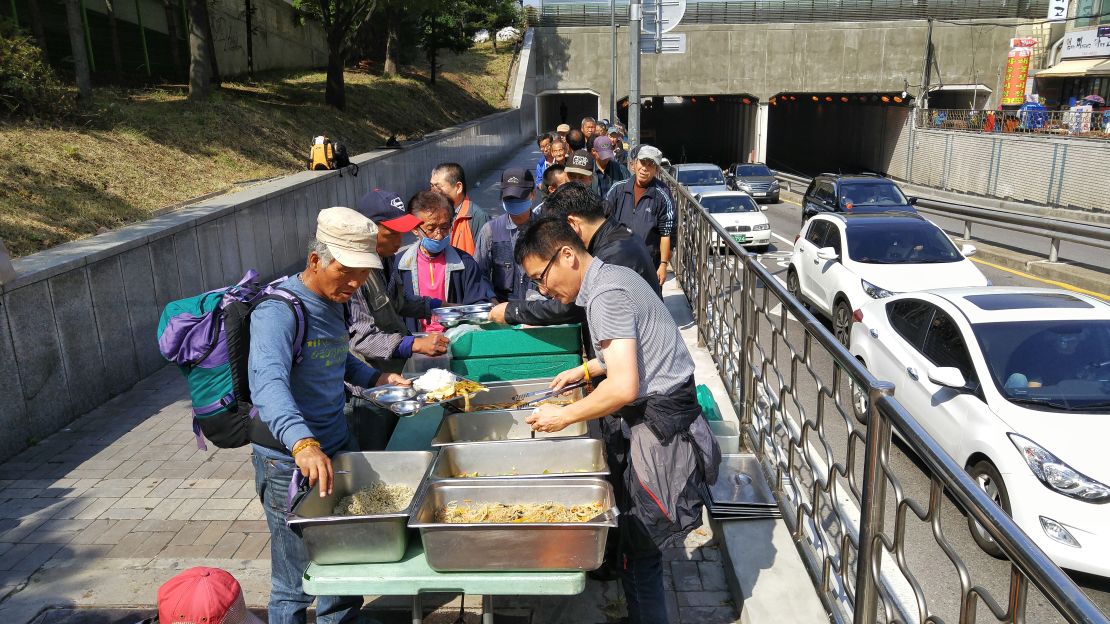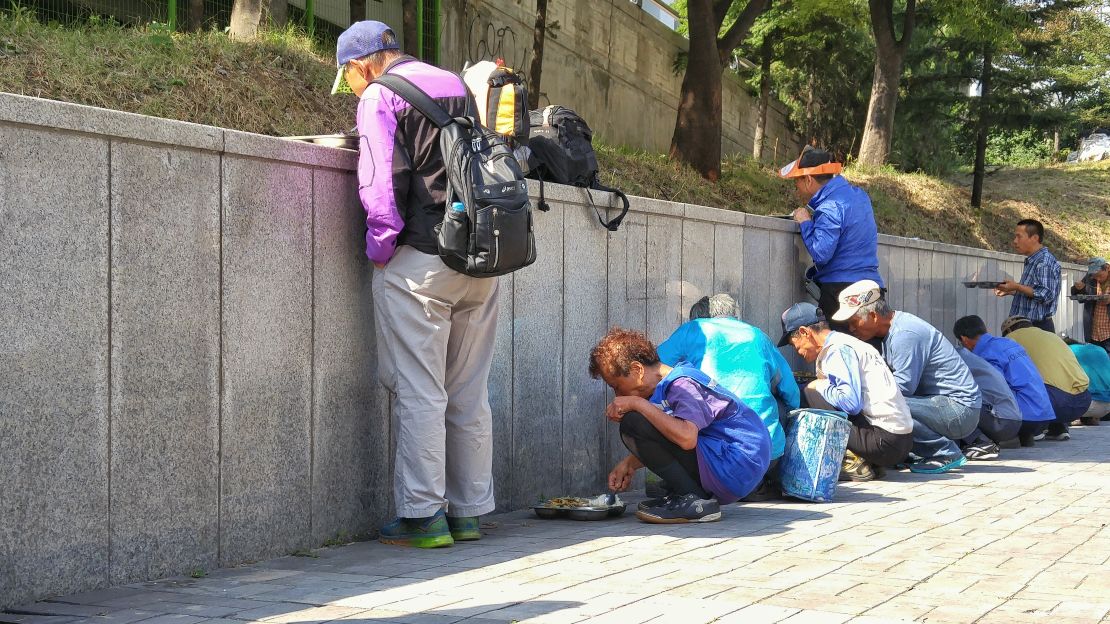Story highlights
About half of South Korea's elderly live in relative poverty, development organization says
The old social structure, which saw children looking after their parents, has broken down
Last year, the government added a "basic pension" but still only provides under $200 per month
On a Saturday morning in South Korea’s capital, Seoul, a line forms near a city underpass.
It’s filled with homeless elderly people, who wait for Pastor Choi Seong-Won to set up his weekly mobile soup kitchen.
Choi has been running this service for the past 18 years, providing hot lunches to people who are part of a generation that helped rebuild the country’s economy after the Korean War, but now cannot afford to feed themselves.
About half of the country’s elderly live in relative poverty, says the Organisation for Economic Co-operation and Development (OECD).
“(Part of) the reason behind the growing rate of elderly poverty is the more than two years of serious economic crisis in Korea, along with the global economic downturn,” Choi says. “Wealthy people will be fine no matter the situation, but people going through economic struggles say now is a really difficult time.”

GDP figures released Friday showed an uptick in third quarter growth of 1.2% – up 2.6% on the previous year – as the economy bounced back from the effects of the MERS outbreak.
But on the whole, the outlook is still relatively weak. Exports contracted 0.2% in the third quarter.
Related: World getting ‘super-aged’ at scary speed
A ‘forgotten’ generation
Many, like 70-year-old Seong Young-sook, are struggling to survive.
“I feel that my generation is being forgotten,” she says. “I worked really hard and I’ve been so diligent. But somehow I ended up here.”
She runs a small shop selling clothing and handbags in the country’s capital, Seoul. She’s holding onto her stock, even though she hasn’t seen a customer in two years. When the customers stopped coming, she filed for bankruptcy and barely had enough money to even eat.
Her husband passed away when her son was just a baby, and when her son grew up, he moved overseas. Alone and depressed, she found herself constantly researching suicide methods.
“I tried to kill myself next to my husband’s grave. Someone discovered me and I survived,” she tells CNN.
She is not alone. South Korea has the highest rate of elderly suicide of the 34 developed nation OECD countries.
Related: See the ‘super-aged’ nations
Broken social structure

Pastor Choi says some parents kill themselves so as not to be a burden on their families.
He says the old social structure, which saw children looking after their parents, has broken down.
“I think there’s a growing number of homeless elders because sons and daughters and our government are not taking good care of them,” he says.
The government tells CNN that it is working to help the elderly in retirement, but says part of the problem is that the national pension system has only existed in South Korea since 1988.
It expanded the system to add a “basic pension” targeted at the poorest of the nation’s elderly last year. But that still only provides under $200 per month, and many say that is not enough.
This is all a serious concern in a country with a rapidly aging population.
HSBC economist Joseph Incalcaterra compares the situation to that of Japan, where the population has been aging over the past 20 years.
And he says that the issue is much more urgent in South Korea.
“(South) Korea is doing this at a much quicker rate. It’s going to create an even bigger headwind,” he says.
The government hopes that as the pension system matures, more people will be guaranteed funds for their retirement. It forecasts that by 2060, over 90% of the population over the age of 64 will receive some kind of pension.
In the meantime, the elderly are forced to rely on the kindness of people like Pastor Choi to survive.


